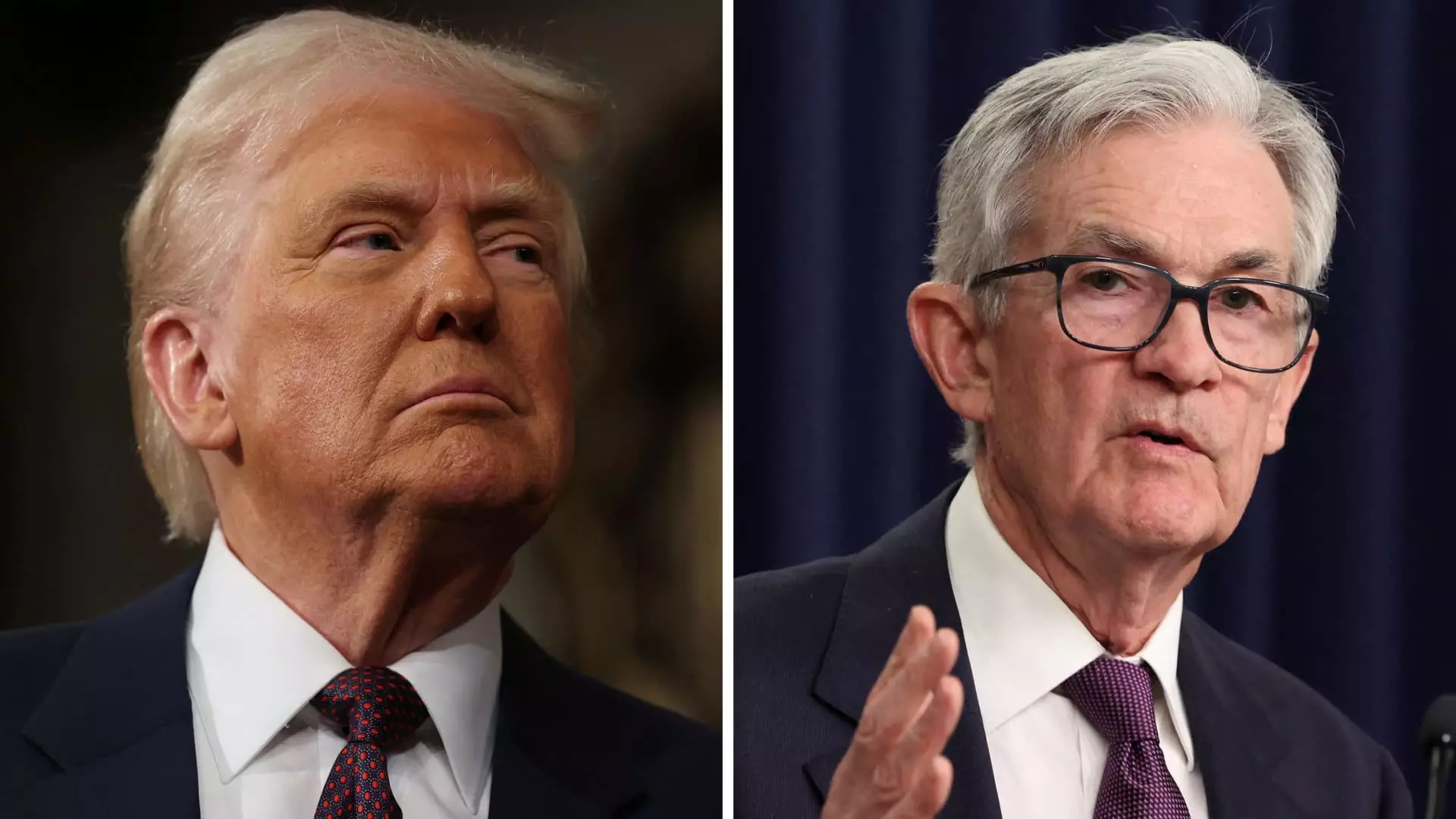In recent political discourse, Donald Trump has reignited his fiery rhetoric against the Federal Reserve, emphasizing the need for rate cuts and even suggesting the termination of Fed Chair Jerome Powell. The implications of Trump’s demand are vast and complex, raising foundational concerns about the delicate balance between economic stability and political maneuvering. Rate cuts, while seemingly beneficial in the short term, can jeopardize long-term economic health, particularly if instigated by political pressure rather than sound economic policy. In an age where political narratives often overshadow fiscal responsibility, Trump’s persistent meddling could lead to a detrimental erosion of institutional integrity.
The ECB’s Dilemma: A Cautionary Tale
Trump’s assertions regarding the European Central Bank’s current path—lowering rates to stimulate growth—may seem persuasive but underscore a fundamental misunderstanding of economic environments. The economic landscapes of Europe and the United States are starkly different. The European Central Bank operates under unique circumstances, including varying inflation rates and labor market dynamics that do not align with those in the U.S. Emulating policies from abroad without due diligence could lead to impulsive decisions, resulting in misguided economic strategies that fail to account for domestic intricacies.
Tariffs: A Double-Edged Sword
Powell highlighted an undeniable tension between the administration’s tariff policies and the Fed’s dual mandate of controlling inflation while fostering growth. The introduction of tariffs can inflate costs for consumers and disrupt supply chains, creating an ironic loop where efforts to protect domestic industries lead to broader economic harm. By merely calling for rate cuts without addressing the foundational issues stemming from tariffs, Trump and his followers risk exacerbating the very economic challenges they seek to mitigate. A true leader should recognize that economic health is not achieved through reactive measures, but rather through a balanced, comprehensive approach.
Leadership by Threat: A Dangerous Precedent
Trump’s open suggestion to fire Powell marks a significant departure from the traditional respect afforded to Federal Reserve independence, a pillar of American financial stability. By undermining Powell, Trump sends a troubling message to investors and market participants: political interests take precedence over economic rationality. When leadership is exercised through threats, it establishes a volatile atmosphere that can foster uncertainty within financial markets, leading to sell-offs or erratic movements in asset prices, which ultimately harm American families and businesses alike.
A Call for Composure and Rational Discourse
In an era where division and conflict seem to consume political discourse, it is critical for all stakeholders—politicians, economists, and citizens—to advocate for dialogue steeped in statistical evidence rather than whims of rhetoric. Trump’s repeated calls for aggressive monetary policy changes underline a need for a more professional discourse surrounding the Fed’s role in the economy. Rather than deferring to populist sentiment and demanding immediate results, the focus should shift toward fostering a healthy discussion about long-term solutions to economic challenges. In doing so, leaders can restore public confidence in the institution of the Federal Reserve and reorient the national conversation towards sustainable growth—an imperative for the future of the American economy.

